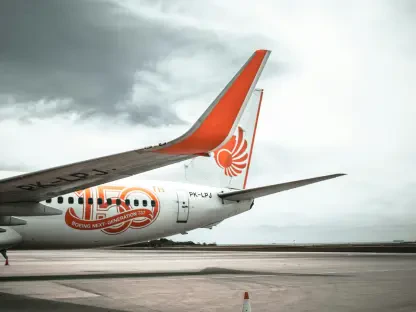In the rapidly evolving hospitality industry, the integration of technology has become a cornerstone for enhancing guest experiences while maintaining the human touch that defines exceptional service. A recent US hospitality survey revealed that 76% of hoteliers believe personalizing guest interactions through technology significantly boosts their reputation and drives repeat business. By connecting a hotel’s property management system with client relationship management solutions, hoteliers can now offer tailored communications and personalized offers based on guest behavior. Tools like the Mews for Salesforce solution and Knowland’s AI-enabled platform, as well as beacon technology from LoopMe, play pivotal roles in this transformation. These tools target guest preferences and promote relevant offers using real-time data.
Addressing labor shortages, which 67% of hoteliers reported as an issue this year, automation is leveraged to manage business operations efficiently, freeing staff to focus on more meaningful guest interactions. Innovations range from automated check-in/check-out through the Mews Kiosk, to food delivery robots such as those from Piaggio Fast Forward, and AI-powered sustainability solutions like BeCause that optimize resource use. By prioritizing user disengagement, Mews aims to reduce screen time for employees, thereby increasing direct guest engagement and satisfaction.
Moreover, advanced data analysis has become instrumental in allowing hoteliers to better understand and cater to individual guest preferences. Platforms like GauVendi enable guests to personalize their stays by selecting specific room features. AI systems continually analyze guest feedback, providing insights that refine services and adapt to guest expectations. Fornova’s real-time market insights aid in crafting optimized strategies, ensuring that guest experiences are both unique and memorable.
Enhanced communication channels, including mobile apps, chatbots, and social media, facilitate seamless and instantaneous interactions between guests and hotel staff. Notable examples include AI chatbots like Edward at Edwardian Hotels and Odi at Hotel Oderberger, which adeptly handle guest inquiries, reserving complex issues for human agents. Safety is also improved through robotics, performing repetitive or high-risk tasks, and AI surveillance systems, identifying unusual behavior to enhance hotel security. Technologies like the K5 security robot have reduced the necessity for continuous human patrolling, ensuring guest safety without compromising hospitality’s warm, personal touch.
As technology continues to evolve, the concept of anthropomorphism in AI indicates that future AI could display human-like qualities, fundamentally transforming guest interactions by providing empathetic and nuanced communication. Nonetheless, the essential warmth of human hospitality must be retained. A balanced approach emphasizes demonstrating technology’s value to stakeholders, providing comprehensive training to build staff confidence with tech, and encouraging adoption among both guests and staff by showcasing the benefits and ease of use.
The overarching trend highlights that, when employed thoughtfully, technology can deepen human connections by understanding guest needs, enhancing communication, empowering staff, and creating distinctive experiences. While AI and automation deliver significant efficiencies, their role should be enhancing, not replacing, the human elements that are the hallmark of outstanding hospitality.









